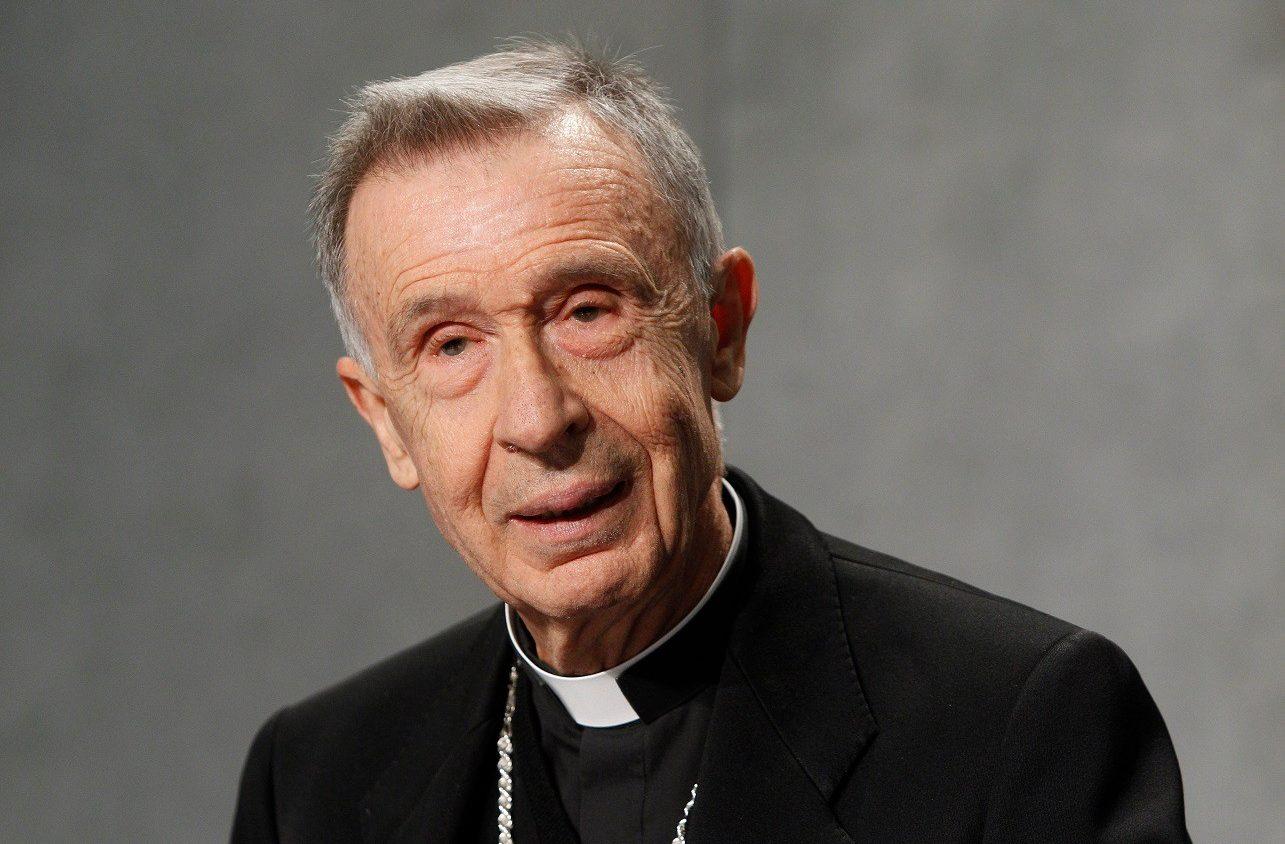MARSEILLE – After media reports suggesting that Spanish Cardinal Luis Ladaria’s withdrawal from the upcoming Synod of Bishops on Synodality was tied to his handling of the case of a prominent Jesuit artist accused of abuse, the Vatican called those claims “pure fantasy.”
“Regarding some media articles relating to the reasons for why Cardinal Ladaria Ferrer will not participate in the coming synodal assembly, in agreement with His Eminence, it is specified that these reconstructions have no foundation and are the fruit of pure fantasy,” a Sept. 23 Vatican statement said.
“The truth of the facts is that having completed his mandate as prefect of the Dicastery for the Doctrine of the Faith, Cardinal Ladaria, close to 80 years of age, asked not to participate in the synod exclusively due to accumulated tiredness and his desire for a bit of rest,” the statement said.
Ladaria, who was recently replaced as prefect of the Dicastery for the Doctrine of the Faith (DDF) by close papal friend and confidant Argentinian Cardinal-designate Víctor Manuel Fernández, was on the original list of papally-nominated participants in the synod published earlier this summer.
However, a newer version of the list released Thursday included two bishops from mainland China, but Ladaria’s name was absent, with synod organizers saying he had personally requested to withdraw.
Shortly after the new list was published, some Italian media outlets speculated that Ladaria’s decision to opt out of the synod was related to the case of Slovene Jesuit Father Marko Ivan Rupnik, one of the Church’s most prominent muralists, and who was expelled from the Society of Jesus in July, having been accused of sexually manipulating at least 20 adult women.
On Sept. 18, despite the Jesuits’ expulsion of Rupnik on grounds of disobedience, as he refused an order from superiors to transfer community houses and did not cooperate with an internal investigation, the Vicariate of Rome gave him and the Centro Aletti he founded a clean bill of health.
Calling the Centro Aletti, where Rupnik for years has lived, offered spiritual retreats, and conducted various art projects, “a healthy community life free of particular critical issues,” the vicariate said its review of the center, conducted after allegations against Rupnik went public, had identified “gravely anomalous procedures” behind a May 2020 decree of excommunication against Rupnik from the Vatican’s doctrinal office.
RELATED: Diocese of Rome praises Rupnik center, raises doubts on excommunication
In the statement, the vicariate raised what it said were “well-founded doubts” about the decision.
The 2020 excommunication, lifted after 15 days under what are still murky circumstances, was incurred by using the confessional to absolve a woman with whom he had engaged in sexual activity, considered a serious crime under Church law.
After the Vicariate of Rome issued its statement, Rupnik’s alleged victims published an open letter saying the statement was proof that pledges of “zero tolerance” for sexual abuse by Church officials are merely a “PR campaign…followed only by frequently covert actions, which support and cover up for the authors of abuse.”
RELATED: Alleged Rupnik victims say rehabilitation shows zero tolerance is just a ‘PR campaign’
Italian media reports on Ladaria’s exit from the synod stated that he had decided to step back just hours after the vicariate’s statement was published.
However, Crux has learned that Ladaria had already withdrawn from the synod at least several days prior the release of the vicariate’s statement.
Both Fernández and Ladaria’s immediate predecessor at the DDF, German Cardinal Gerhard Müller, remain participants in the upcoming synod gathering, set to take place from Oct. 4-29 as the first of a two-part discussion that will close next year, in October 2024.














